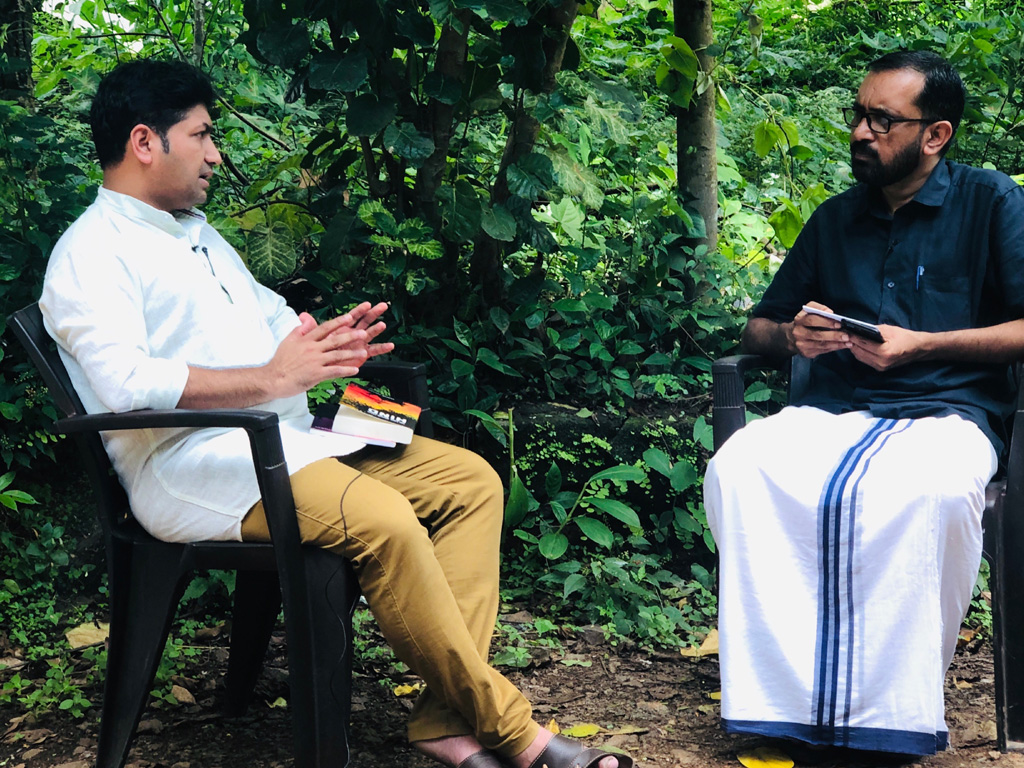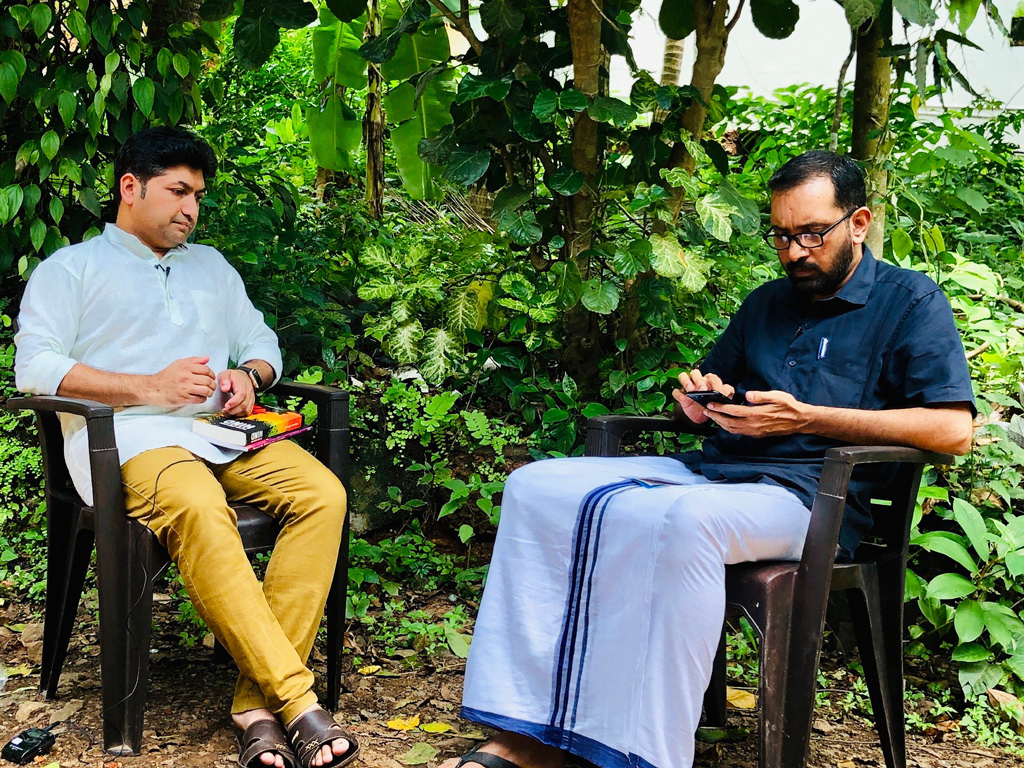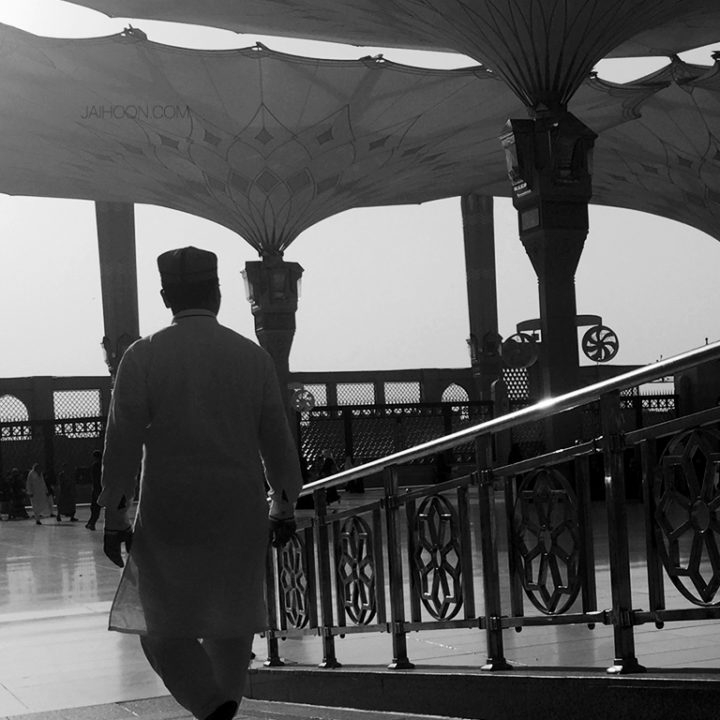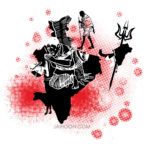July 14 2019 (Valanchery – Malappuram) : In a TV interview on E-Channel, writer and activist Mujeeb Jaihoon talked about creative writings, gadget culture among the youth and the intellectual space for lady scholars in Muslim Kerala. Hosted by Salam Valanchery, prominent TV anchor and political critic, the interview conducted in Malayalam language (mother tongue of the author) was expected to be watched by an estimated two hundred thousand viewers in Malappuram, the Muslim-majority district of the South Indian state.

Introduction to Jaihoon
SV: Welcome. Our guest today is Mujeeb, known by his pen name Jaihoon.
MJ: Thank you.
SV: Where and how did Jaihoon begin?
MJ: I was born in Kerala. Later migrated to Sharjah, UAE where I completed my school and college studies. Began to read voraciously and writing during college days, influenced by the philosophy of Rumi and Iqbal.
SV: Is Jaihoon a Persian word?
MJ: Jaihoon, name of a river, is popular in Persian literature. It is also said that Jaihoon and Saihun are among the rivers in Paradise. I discovered the name in a couplet of the Poet-Philosopher, Allama Iqbal.
SV: Does Sufi influences often appear in your writings?
MJ: Yes. My readers and critics often claim so. I do not deny their allegation. It may be out of the infatuation from the choice of literature I read during college days.
SV: Being a Malayalee, why don’t you write in English?
MJ: I was educated in English. Although my writing is Western, my thoughts are mostly shaped by Eastern values and traditions.
Jaihoon Readers
SV: Who are your readers?
MJ: As far as I know, my readers are broadly of two categories. One, of the West whose native language is English. They were my initial readers. They have shared their intimate experiences while interacting with my works. Once an American reader shared his experience of recollecting my verses during his circumambulation of the Ka’aba at the Pilgrimage. The second category are those Asians among who English language usage is growing.
Rumi’s Poetry
SV: Have you translated any of Rumi’s works?
MJ: I don’t believe in directly imparting their works in their original form, since I am unqualified for such a job. I present their messages through my little works.
Sharjah Factor
SV: You are currently based out of Sharjah. Perhaps, there may not be another place in Arab world which encourages writers as much as this emirate. Has life in Sharjah taken you closer to writing?
MJ: Yes. Sharjah has definitely brought me closer to the world of writing. Dr. Sheikh Sultan Al Qassimi, the Ruler of Sharjah, is a man who personally encourages writers and books. He is a writer on his own. He endears books as his family members. Sharjah is a compelling paradise of writers. Not just the Sharjah International Book Fair, but scores of other institutions function to promote writers community. My historical fiction, The Cool Breeze From Hind, contains several references to the literary and cultural beauty of Sharjah.
Literature in Arab World
SV: How do you see the growth of literary writings in the Arab world?
MJ: Literary lovers are surely growing. However, the region is yet to come of age for freedom of expression. Albeit, several Arab writers have won prestigious international literary prizes, including the latest Omani writer Jokha Alharthi who was awarded the Man Booker literature prize. Besides, Sheikha Bodour Al Qassemi, the daughter of Sharjah Ruler, is an iconic Emirati publisher who promotes female writing talents, besides being an active member of the international publishing community.
Sharjah Book Fair
SV: Sharjah Book Fair is home to many book launches. Have your books been released at the event?
MJ: SIBF has become a dream venue for authors to launch their books in this spectacular literary festival attended by authors, booklovers and publishers from around the globe. I have been able to launch few of my books at this literary carnival with the generous support of the Book Fair authorities.
JAIHOON.COM
SV: JAIHOON.COM was a familiar name to Malayalees from the early days of internet. You introduced many scholars and orators through this portal. What influenced you to take up such a mission?
MJ: Internet for me is just a medium. As a Malayalee and Indian, I am deeply committed to the traditions of my Community and Nation. I realized Internet was an excellent opportunity to offer my ‘payback’ for my country and its legacy. I used the limited hours of my college’s internet lab for promoting the gems of my country’s history and historical personalities with the rest of the world.
SV: Internet has changed in form and conception. Has JAIHOON.COM embraced these developments?
MJ: Indeed. There is no point in turning a blind eye to the technological breakthroughs. We have to adopt the latest technological means to disseminate our heritage. The UI and contents of the website are subject to periodic revisions.
Books vs Online Reading
SV: With the outrageous growth of screen reading, it is said that print media is adversely affected. What do you feel?
MJ: This is an FAQ raised by many booklovers. I too face this dilemma often. Many of our reading domain is constrained to social media posts or updates. Nevertheless, books remain perpetually relevant. The reading life of social media literature is only until the death of the concerned hashtag which lasts few weeks maximum. Only books can be relied for infinite reading experience. Books are the ultimate literary companion of the mankind.
SV: What are your future book projects?
MJ: I am planning a compilation of my talks as well as a political biography.
Slogans of the Sage
SV: You had authored a book on the life and quotations of Shihab Thangal. How was your experience?
MJ: The book was called Slogans of the Sage. All the published works related to the late leader of Kerala have been in the form of souvenirs, booklets, memoirs or supplements in Malayalam. My book had some peculiarities: It was a coffee table book in square format. The book also had original artwork illustrations. The book contained the translated aphorisms by and about Sayyid Shihab Thangal in very concise format. We all say Sayyid Shihab was a great man. However, I often felt the ‘greatness’ people ascribed to him often functioned as a wall than a bridge in understanding his life and message. I believe this compilation of his quotations can demystify the outlook of that noble man to the universal community. There are 100 quotations by Sayyid Shihab and 99 quotations about him penned by myself. The numerical choice was deliberate as I chose to assign the greater number for the late champion of communal harmony. The book received unusual acceptance among several world leaders, dignities, interfaith activists around the globe. For example, an American Jewish interfaith activist, Lee Weismann, who is a popular Twitter celebrity, had honored the book by posting a quotation of Sayyid Shihab on his timeline.
SV: Malayalees are very familiar with Sayyid Shihab. However, not in this fashion. Do you plan a Malayalam translation of this book?
MJ: There is no point in lecturing the Garden about the beauty of the Rose.
SV: But this is a unique form of presenting the late leader’s personality and life. Just as how Shihab Thangal was different, so is this book about him. There is a good opportunity for this in Malayalam
MJ: It is under consideration. However, it is my humble belief that even Malayalees have not properly understood the Thangal. His ‘greatness’ often blocked us from getting closer to his message.
JAIHOON.TV
SV: What is JAIHOON.TV all about?
MJ: I have tried to raise some questions related to certain issues in the Kerala society. For example, Muslim women’s education is going on well in the State with dedicated campuses. But, we have seen more or less no positive results to fill the space of a lady Muslim scholar. We are yet to give it our serious attention. Muslim Kerala does not have in their intellectual tribe an iconic Sheikha, unlike several male counterparts.
Raising Radical Questions
SV: You have recently ventured into campus-centric speeches and training sessions besides your writings. What do you feel about our campuses?
MJ: I’m particularly interested in campuses since they are home to tomorrow’s leaders, scholars and thinkers. It would be more effective to address a classroom of less than hundred students than a public function with thousands. I raise certain questions and leave them to answer on their own.
SV: Is our crisis that we are not asking questions?
MJ: This is the age when we have mistaken spoon-feeding for education. Questions are raised but not in the right domains. Political questions are not suffice. We need social and religious inquiries too. Many blessings we enjoy today are results of questions raised by our radical reformers of past. If our future generation need to enjoy the same luxuries, we have to ask new unconventional questions today.
Youth & Technology
SV: Are you hopeful of our new generation? The abuse of gadgets and social media have created alarming situation leaving us all concerned about their intellectual abilities.
MJ: Of course, I am hopeful. We strive because we are hopeful. The overuse of social media is rife not only among children and youth, but even grandparents. I have heard of homemakers and grandmothers who fetch their mobiles to forward WhatsApp messages immediately after the dawn prayer.
SV: How to go about using Social media then?
MJ: The habit can only be moderated. Not curtailed altogether. Another threat affecting our youths is brand obsession. This poisonous cancer is affecting child-parent relationships as well as friends. Not every breadwinner can afford every brand. This leads to friction and conflict among the children.
Persevering Identity
SV: Any final message to viewers?
MJ: We have to return to our traditions and values. Our Self’s energy and pride should be rooted in our traditions. Globalization is a sweet word to hear and necessity in certain cases. However, every individual deserve his or her own place in this global jungle. In the name of Globalization, we should not blindly superimpose a dominant culture on our own. Identity and Originality should be preserved as Divine-bestowed blessings.
Posted Aug 04 2019







